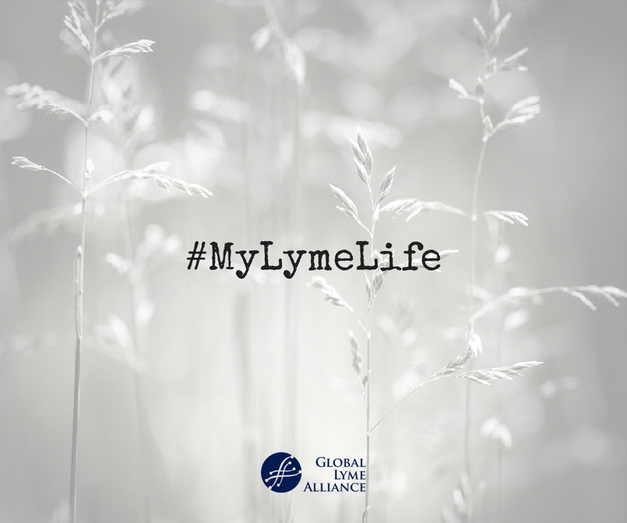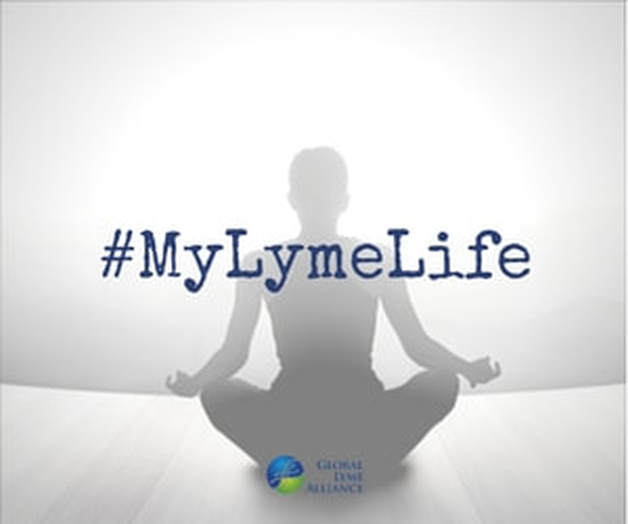|
This article was first published on the Global Lyme Alliance blog on June 12th, 2017. Most of the links on this post are informational, but a few are affiliate links to help maintain this website. This morning my co-worker walked around to each of our offices to tell us that there were muffins the conference room left over from a meeting. Every time I passed the conference room the fresh blueberry muffins were calling out to me from the paper plate. I argued with myself throughout the day—it's just one little muffin. What could it hurt? But I know what it would hurt. It would ramp up the inflammation in my body, eventually leading to aches and pains in all my joints. All that from a plate of muffins, which most people wouldn't even think twice about. I try not to live in the past. It's not a good use of my time and energy to wonder what could have been…What would've happened had I never gotten sick? What if there had been better information about prevention at that time and I had gone to the doctor after those tick bites? What if my body was able to fight off the bacteria? But there are days. Days when I miss staying out late at night. Days when I miss eating anything I want. Days when I miss not taking handfuls of pills and supplements with every meal. Days when I miss feeling full of energy. When you are diagnosed with a chronic illness your future becomes full of unknowns. Chronic illness is a lifetime companion. Even if remission occurs, there is always the fear that it could come back, so I doubt I’ll ever entirely return to my old ways of going to all day festivals or binge-watching TV shows until three in the morning. This new life is here to stay, and sometimes I really miss the old one Summer is especially difficult. Some of my fondest memories are of being on a roof deck restaurant in Chicago. My friends and I would go there on warm days and drink cold beer and eat giant soft pretzels cooked on the grill. Because of antibiotics my skin is now sensitive to the sun, so roof deck restaurants are no longer an option. I probably wouldn't enjoy it anyway, because the diet I follow doesn’t allow alcohol or gluten. I don't spend as much time outside during the summer anymore, because I'm afraid of reinfection. I miss walking on nature trails without fear and not worrying when my dog runs behind our garage into the brush. I used to see the beauty in a field of tall grass, now I just see the potential for ticks. What do I do when I miss my life before Lyme? I allow myself to be disappointed for awhile. It's okay to be sad that things are different now. After the disappointment, I shift my perspective and give myself some gentle reminders. I have a chronic illness, not a terminal one. My illness is not rare, and there is a community millions strong I can lean on for support. My illness may not be curable—yet—but it is treatable. It's only then that I'm able to think about the ways I'm grateful for Lyme. Lyme has offered me the chance for personal reinvention. Instead of just being the person who can’t do things she used to, I’ve decided to become the person who explores the new things I am able to do. I've taken up meditation and gentle yoga. When I make travel plans, I look for places with plenty of opportunities for rest and relaxation. I've shifted my finances away from nights on the town and toward massage therapy and organic food. My focus has shifted from outward to inward and I’m okay with that. I like the new, low-key version of me. Lyme has also taught me not to take anything for granted. I may not be able to eat a muffin or sip beer on a roof deck, but there is still a world of things that are available to me, like the occasional gluten-free cupcake or going to an organic farm-to-table restaurant with big open windows that let in a cool breeze in from outside. There will always be reminders of what it was like before Lyme and sometimes I will feel nostalgic and even sad. It’s taken some time, but I've learned to love my life with this diagnosis. "Stress occurs when you care about something...think about how to use what stress tells you to create a life more vital than the one you had before." - Alia Crum
2 Comments
This article was first published on the Global Lyme Alliance blog on June 6th, 2017. Most of the links on this post are informational, but a few are affiliate links to help maintain this website. Sometimes meditation is offered up as a cure-all for chronic illness. This is certainly not true, and occasionally dissuades people from trying it. In my experience, it hasn’t cured my Lyme disease, but the benefits have been remarkable. Meditation became a part of my self-care routine during my ordeal to find a diagnosis. I was so anxious about not knowing what was going on in my body that I was having frequent panic attacks and couldn't sleep. The slow process of speculating about a cause, scheduling tests, and then waiting on the results was so stressful I couldn't focus on anything else. To take my mind off the waiting game, my integrative doctor suggested a mindfulness-based stress reduction class. On my first day, I walked into a room of about 10 people. I was surprised to see a group of average looking adults. We went around the room and shared with each other why we were taking the class. We all had different reasons for being there, health issues, stressful jobs, relationship problems, but the common theme was the same—anxiety was taking over our lives. The class was an educational seminar run by a psychologist. He showed us a powerpoint presentation that taught us about the "fight or flight" reflex. This response of the autonomic nervous system is only supposed to activate when there is an immediate threat to our lives. However, in people with anxiety it's turned on all the time. The problem for people with chronic illness is that when the fight or flight reflex is turned on, the immune system is turned off; therefore, the body is not able to heal. This was a huge wake up call for me. I knew I had to do everything I could to put my body in a healing state. At the end of class, the psychologist led us through a guided meditation in which we visualized putting our racing thoughts on leaves as they passed by in a stream. It was the first time in months I felt like I could let my worries go. Each week I went back and learned a little more about the nervous system, the brain, and mindfulness strategies to use throughout the day. The psychologist provided us with a digital recording of a 10-minute meditation we could listen to between classes. Whenever my heartbeat would start to increase signaling an impending panic attack, I put on the meditation and tried to breathe through it. Occasionally, I had to listen to it twice, but it was always helpful. A few times when I was talking to my husband, he could tell my thinking was spiraling downhill. He suggested I do the meditation and then we could resume our conversation. Once I'd taken a 10-minute pause from fear-based thinking, I was able to rationally discuss the situation and decide on the next step. Meditation will not fix everything. I’ve heard some Lyme patients get annoyed because people encourage them to meditate as if it's a quick fix to a complex, serious illness. Meditation will not cure fatigue, vitamin deficiencies or swollen joints, but it does help with some symptoms. Meditation has had the following benefits for me: Calms the "fight or flight" reflex: Prior to practicing meditation, I spent all day and night in "fight or flight." Meditation and mindfulness taught me how to use my inner voice to talk myself down from imagined threats. Prevents emotional extremes: I used to go off on my husband and say mean and hurtful things. Eventually, I learned this was because of "Lyme rage," a symptom of neurological Lyme. We tend to become very frustrated and then unleash on those we love. After regular meditation for about three months, I noticed I wasn't losing my temper anymore. I still became frustrated but my emotions stayed in check. Helps with sleep: Insomnia is one of the hallmark symptoms of Lyme. Before I started meditating I couldn't fall asleep or stay asleep. In combination with a very detailed nighttime routine, meditation has taught my brain how to shut down and prepare for sleep. When I have difficulty falling asleep I turn on a guided sleep meditation and it usually does the trick. Taught me how to breathe through pain: Meditation has not changed my level of pain, but it has helped me cope with it. Remaining in a relaxed state, even when dealing with high levels of pain has prevented my thoughts about the pain from making it worse. If I stay mindful, I'm able to think clearly about what I can do to minimize the pain. My practice consists of sitting for a guided meditation for five to 20 minutes first thing in the morning, followed by a few yoga poses to loosen up my spine. There are smartphone apps and websites that offer guided-meditations or meditation music. I learned that if I don't do it first thing in the morning I won’t do it at all. Now it's a part of my daily self-care routine. Meditation may not be right for you, but you can still practice mindfulness. Try to stay in the present moment while doing dishes, going on a walk, or reading a book. Every moment in the present is an opportunity for healing. "Where there is peace and meditation, there is neither anxiety nor doubt." - St. Francis de Sales |
WelcomeI'm Kerry (She/Her/Hers) and I am a licensed therapist, group facilitator, poet, writer, & speaker. This is a place to acknowledge and validate our suffering and trauma, while also learning how to turn toward aliveness and spaciousness. Categories
All
Archives
April 2024
|
|
Copyright © 2024 Kerry J Heckman All rights reserved. Disclaimer.
|
|



 RSS Feed
RSS Feed